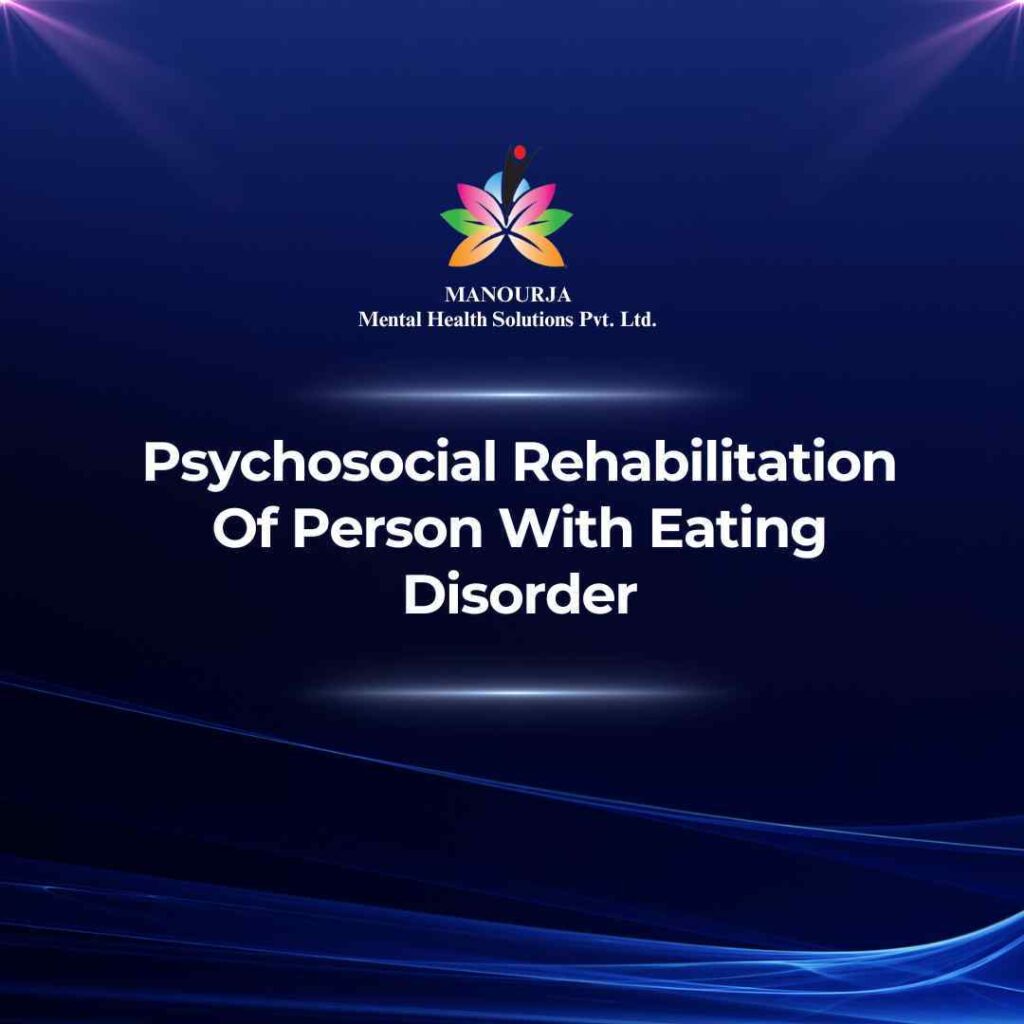Psychosocial Rehabilitation of Person with Eating Disorder

Psychosocial rehabilitation for individuals with eating disorders aims to enhance their social skills and overall quality of life while managing the symptoms of their condition. This kind of rehabilitation is comprehensive and personalized, usually encompassing several key areas:
Therapeutic Support
Therapeutic approaches are vital. Cognitive Behavioral Therapy (CBT) is often the first choice because it tackles the negative thought patterns and behaviors driving the eating disorder. Family-Based Therapy (FBT) is especially effective for younger individuals, as it involves the entire family in the recovery process, ensuring the person has a supportive home environment that promotes healthy eating habits. Interpersonal Therapy (IPT) addresses difficulties in personal relationships that might contribute to the disorder.
Nutritional Counseling
Nutrition plays a crucial role. Dietitians help devise meal plans that reintroduce a balanced approach to eating and educate on the nutritional needs of the body. This helps break the cycle of harmful eating habits.
Group Support
Support groups provide a sense of community and belonging. These groups allow individuals to share their experiences and challenges and receive support from others who understand what they’re going through. Groups focused on skills development, like stress management and social interactions, can also be incredibly beneficial.
Medication Management
Sometimes, medications are used to manage symptoms of anxiety or depression that often accompany eating disorders, although this is tailored to the individual’s specific needs.
Vocational Rehabilitation
This aspect involves helping individuals find and keep a job, which can significantly boost self-esteem and independence. For students, it might mean negotiating accommodations that help them succeed academically without overwhelming stress.
Case Management
A case manager can be instrumental in coordinating the various aspects of a person’s care. They ensure that appointments are kept and therapies are adjusted according to the individual’s progress and needs.
Relapse Prevention
Equipping individuals with the tools to recognize early warning signs of relapse and effectively manage them is crucial. Regular check-ins with healthcare providers help to tweak treatment plans and address new challenges as they arise.
Holistic Therapies
Incorporating mindfulness, meditation, and even creative therapies like art or music can significantly reduce stress and improve one’s relationship with their body.
In psychosocial rehabilitation, the focus is on empowering the individual to play an active role in their recovery. The aim is not just to manage the eating disorder, but to help the person build a life where they feel in control and fulfilled. Each treatment plan is tailored to the person’s unique needs, taking a holistic approach to ensure long-term success and well-being.
At MANOURJA, we believe in the transformative power of counseling. Our experienced therapists offer a safe and supportive space where you can explore your thoughts, emotions, and challenges. Through personalized counselling sessions, we’ll work together to develop coping strategies, build resilience, and achieve lasting positive change. Discover the path to a healthier, happier you with MANOURJA counselling services.
MANOURJA Rehabilitation Services
At MANOURJA, we’re dedicated to helping you in rebuild your life, after difficult times. Our rehabilitation services focus on understanding what you need to move forward, whether you’re recovering from addiction, trauma, or any psychological – social challenges. We create personalized plans, that are all about helping you, regain your strength and find hope again. With a caring team by your side, you’ll have the support to make real progress and take steps toward a brighter, healthier future.
